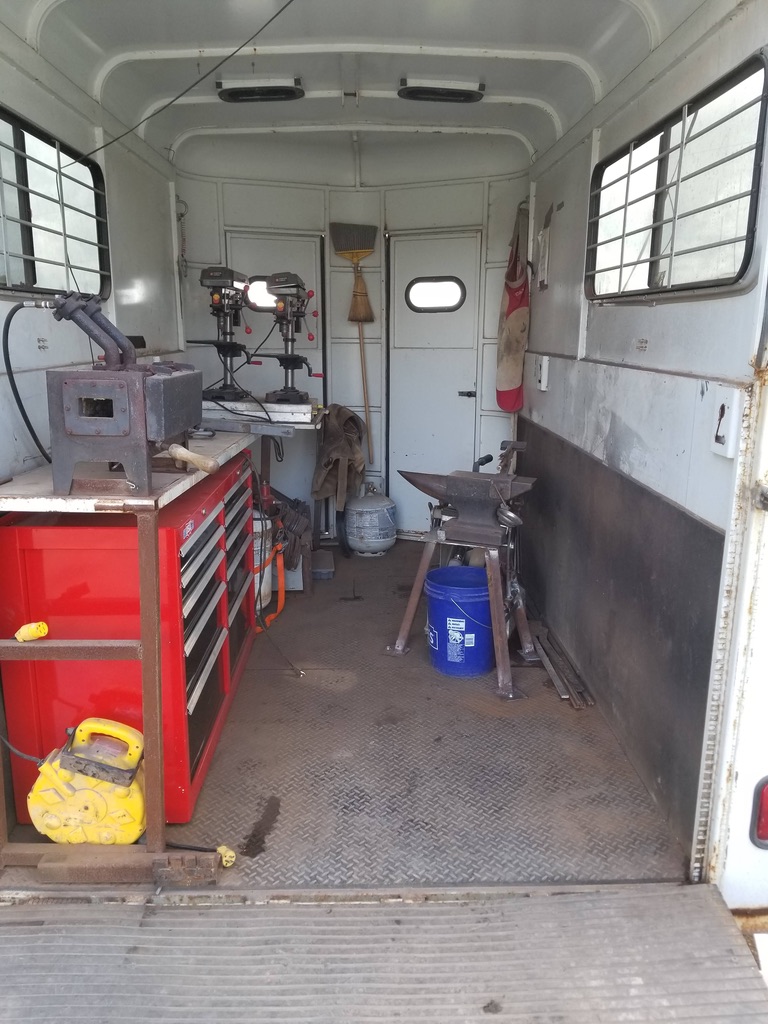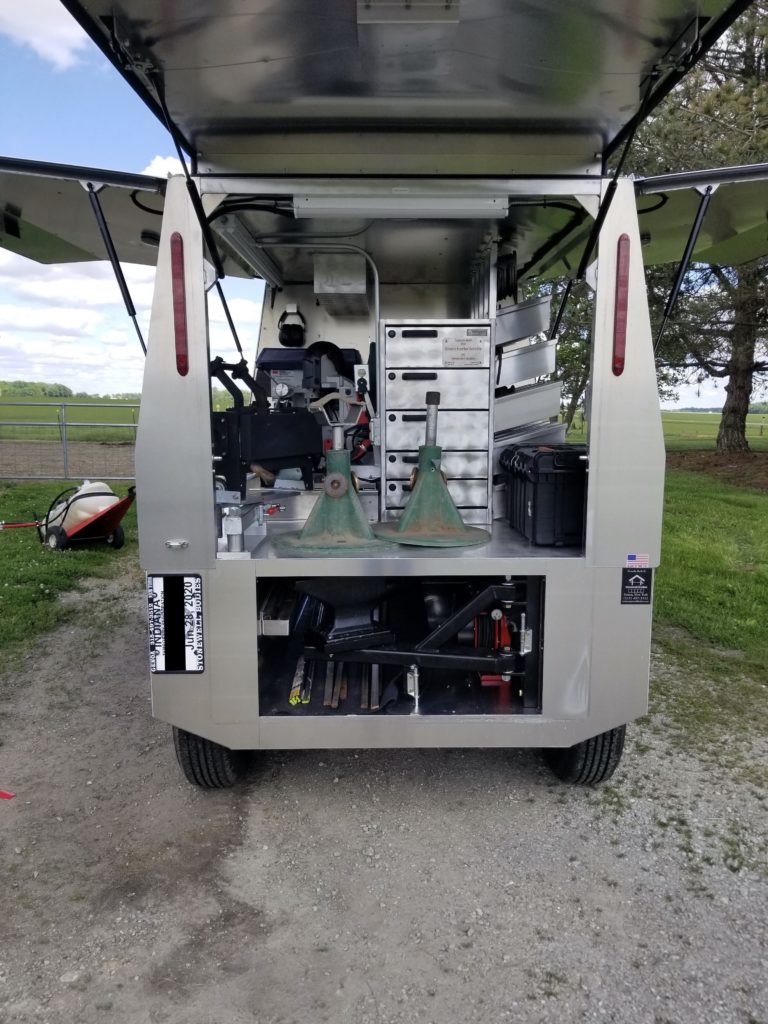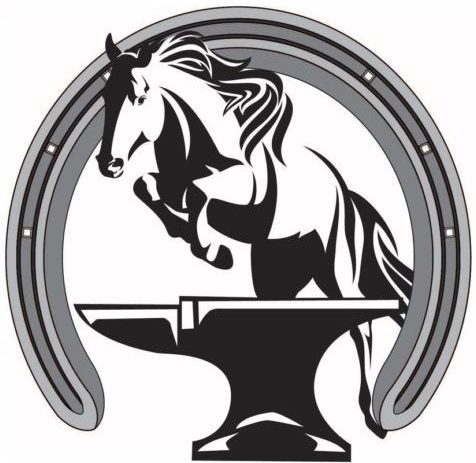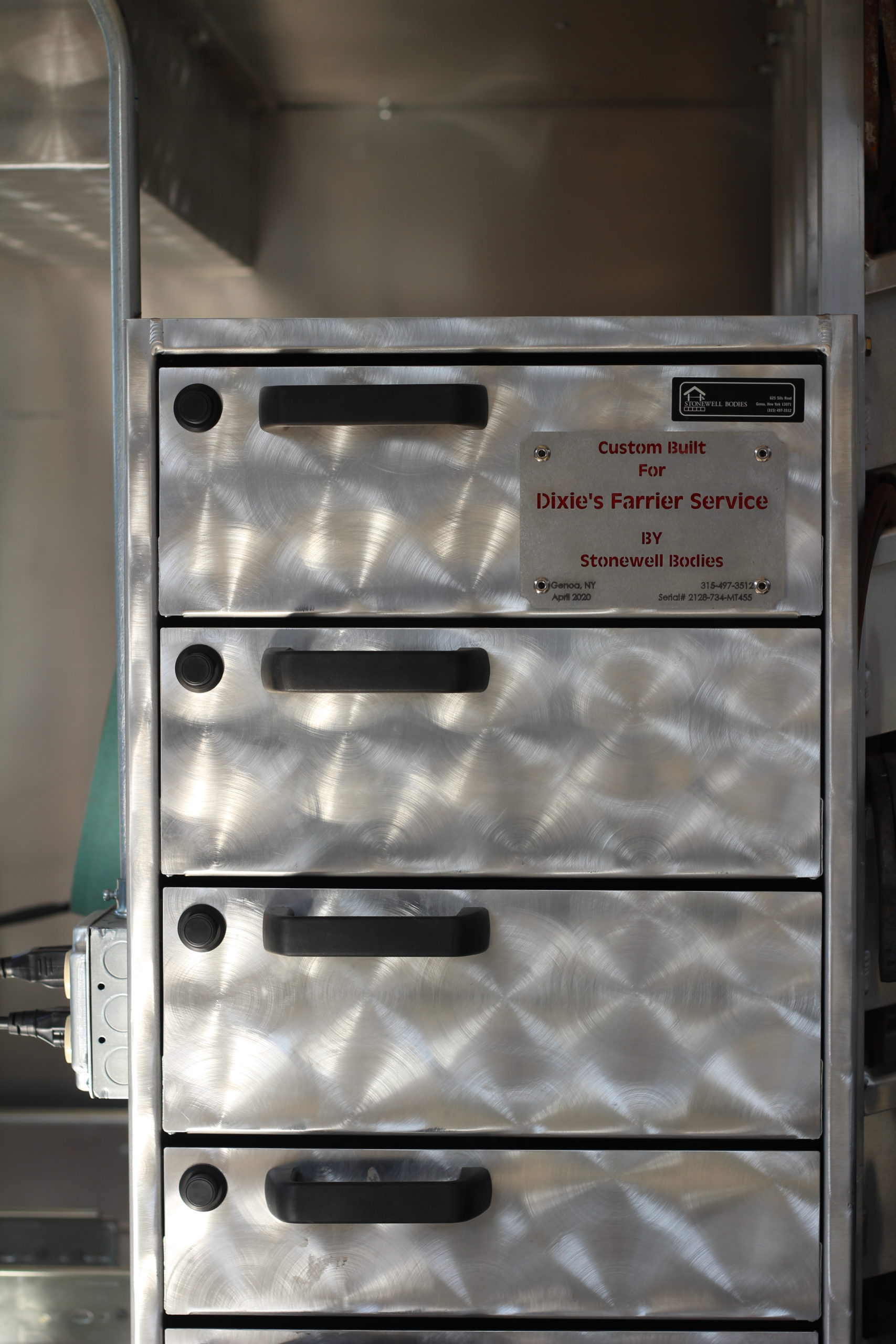This spring we were able to purchase a new trailer from Stonewell Bodies in New York. There are many different variations of farrier rigs to choose from, so what considerations go into choosing what to buy or build? It seems the list of considerations is nearly limitless, with certain basic types of rigs being more popular in different areas. Here in the US, heavy trucks or trailers are popular, while in the UK there are far more small vans, in some areas it is light pickups like a ranger or tacoma.
Some of the considerations:
- Mileage driven per day
- Fuel economy
- Type and condition of roads traveled
- Ease of access to properties
- Typical weather conditions
- Amount and type of equipment needed
- Preference of driver
- Type of work typically done
- Supplies needed per day
- Client expectations
- Efficiency for work
- Convenience
- Height of farrier
- Single or multi farrier practice
- Maintenance schedule
While this new trailer is a shiny custom built model we have used several different rigs over the years that were very efficient. For the first two years out of school I used a Ford Ranger that didn’t even have a cap on it. Just a forge, anvil and some bar stock in the back. Good on fuel mileage but not so much fun in the rain. Next was a Dodge 2500 with a cap on it which went though a couple different configurations. This was much better as everything was out of the rain and permanently mounted along with a swing out anvil for the second configuration. Third was a white two horse trailer that was stripped out and converted. This was by far the most time efficient system and the best in adverse weather since everything stayed in place and you simply had to walk in and start working. This new Stonewell trailer will hopefully be the last for us to buy as it will be a simple matter of replacing tow vehicles as needed from now on.
For DFS we selected the trailer we did for several reasons. Being able to have the trailer custom built allowed it to be set up efficiently for the type of work we do, as well as the process and order we do it in. The trailer is also small enough and light enough that we will be able to downsize to a more fuel efficient truck in the near future. The ability to use the trailer with a variety of tow vehicles also allows us to perform maintenance on a truck without missing a day of work.




